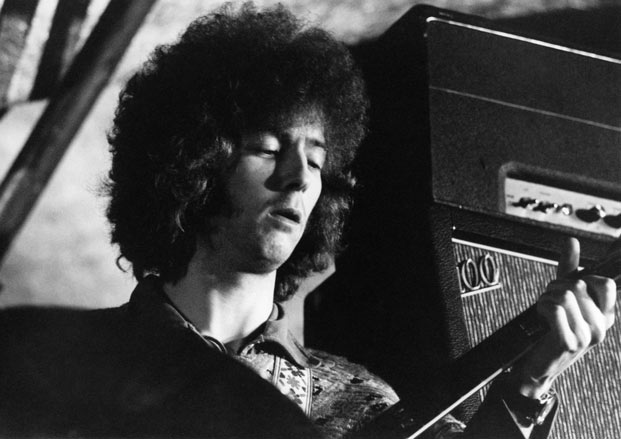A Young Eric Clapton Delivers the Goods for Aretha Franklin in 1967
Then-22-year-old guitar maestro lends his skills to an Aretha Franklin masterpiece.
All the latest guitar news, interviews, lessons, reviews, deals and more, direct to your inbox!
You are now subscribed
Your newsletter sign-up was successful

In December 1967, while he was still a member of Cream, 22-year-old British guitar phenom Eric Clapton was brought into a recording studio in the U.S. and asked to add a guitar part to Franklin’s powerful “Good to Me As I Am to You.”
It represents Clapton’s first official American recording session as a “famous guest guitarist” lending his skills—and, to some degree, his name—to someone else’s recording.
That’s Clapton’s guitar—we assume it’s a Gibson of some sort—in the left speaker; note that you might have to turn it up a bit for the full effect.
“Good to Me As I Am to You” was released January 1968 on Franklin’s Lady Soul album. Other musicians on the track include Spooner Oldham (organ), Tommy Cogbill (bass) and Roger Hawkins (drums). Enjoy!
All the latest guitar news, interviews, lessons, reviews, deals and more, direct to your inbox!

Damian is Editor-in-Chief of Guitar World magazine. In past lives, he was GW’s managing editor and online managing editor. He's written liner notes for major-label releases, including Stevie Ray Vaughan's 'The Complete Epic Recordings Collection' (Sony Legacy) and has interviewed everyone from Yngwie Malmsteen to Kevin Bacon (with a few memorable Eric Clapton chats thrown into the mix). Damian, a former member of Brooklyn's The Gas House Gorillas, was the sole guitarist in Mister Neutron, a trio that toured the U.S. and released three albums. He now plays in two NYC-area bands.
